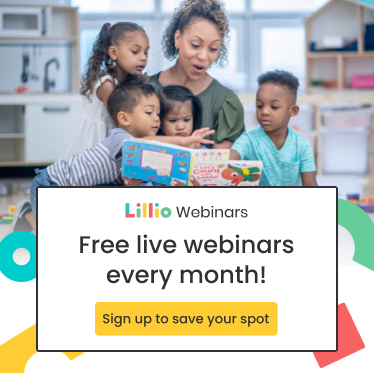Social Skills for Play and Learning
Watch Recording
To get the recording and slides sent right to your email, please fill out the form below!
In this webinar, we were joined by Jan Blaxall and Janet Foster. Both are early years expects with Tools for life. Jan and Janet went through the importance of social skills and the importance of it for children during play, how educators play such a key role and how they can support children through tips on entering play, modeling, and co-regulating with children as they learn and grow.
🎤 Our Special Guests
Jan and Janet are life-long Early Childhood Educators who are committed to promoting emotional and social development as the foundation of well-being, relationships, and learning. For the past two decades, they have researched and taught the milestones and challenges of social-emotional development and the importance of relationship-based approaches to building security, self and other awareness, and social skills that are key developmental tasks in the first 5 years of life. Janet is currently the Coordinator and professor of the Early Childhood Education Program at Fanshawe College in Ontario. Jan was also an ECE professor at Fanshawe College prior to her retirement. Both are actively involved as providers of professional learning and mentoring to ECEs and other professionals working with young children.
🧪 Key Learning Outcomes
- Social Competence is a complex interaction for children and they need to have the tools and skills to interact effectively
- Social competence matters for many reasons. In the short term, it helps children enter play and set foundations for building friendships. In the long term, it is that relationship building and learning.
- We know and understand that toddlers are high energy players. They are full-body learners and their play sessions are typically short-lived. As educators, we have to support them with sustaining their play.
- For children who are a little older, social play depends on their self-regulation and a child’s awareness of others.
- For children who are self-aware and working towards self-regulation, they can enter play easier than children who aren’t.
- Children have 3 skills needed for play in a group: Entering, maintaining play, and problem-solving.
- A child may have different barriers that makes entering play difficult. This can be language, cognitive development, temperament style, or limited self-regulation
- Educators need to remember that not all children have the same experiences or opportunities. This can be a lack of emotional security, experience with materials or with play in group settings, and opportunities.
- Dr. Stuart Shanker’s continuum helps us better understand the challenges children have with self-regulation and how we move up and down in the arousal continuum throughout the day.
- Educators are children’s co-regulators for self-regulation
- Educators are there to help model for a child, to plan opportunities where social skills are needed, and to link them up with peers that will help them build their social skills.
✨Feedback
We want to hear from you! Fill out our survey to help us improve your webinar experience and don’t forget to follow us on Social media
Join our community on Instagram and Facebook
🖥️ Watch Recording
To get the recording and slides sent right to your email, please fill out the form below!
📆 What’s Next on HiMama Helps?
Space is limited and you don’t miss out on our next webinar, register today to reserve your spot!
Running a Child Care Centre is Hard…
We’d love to make it a little much easier! Did you know that parents are increasingly evaluating childcare centers on whether they offer digital parental communication, photo and video updates, and contactless check-in and billing? The HiMama child care app helps to streamline your digital parent communications, join the family today and get a quote!
Ria Reive in the Community Ambassador at HiMama. Prior to starting at HiMama, Ria was an Early Childhood Educator and worked 6 years in the classroom. She taught all ages but mainly preschoolers. Ria lives in Toronto with her husband. In her spare time, she enjoys time with her niece and nephew and being on the water.
More by Ria




